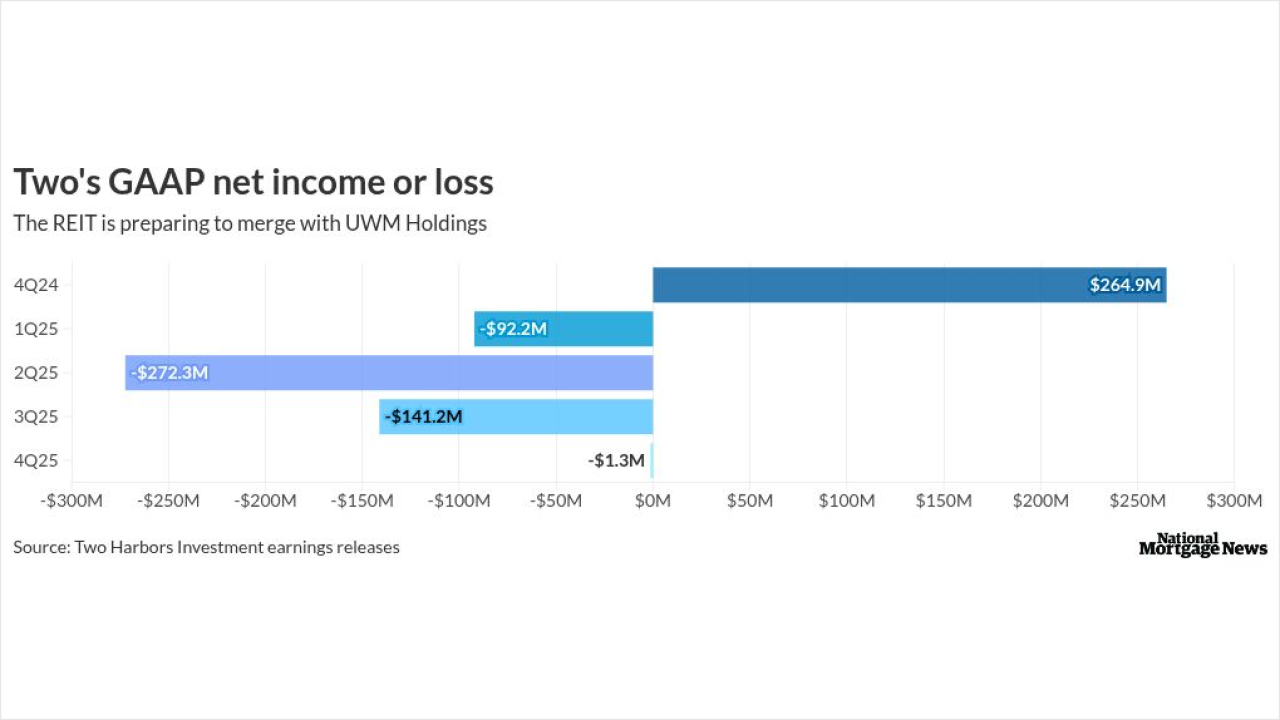Mortgage scam reports have soared in recent years, opposite of the housing market's slowdown.
The industry as of April was reporting 71 mortgage scams per month, up from just 14 per month in 2022 at the tail-end of the refinance boom, according to BackOffice Pro, a business services organization. While real estate companies disclosed losses in just 12% of incidents, the average financial hit was $16,829.
The majority, or 53.3% of those cases involved phishing, in which fraudsters impersonated title companies, lenders or real estate agents to redirect wire transfers in the homebuying process. The finding coincides with the FBI's recent
Other leading mortgage scams, according to BackOffice Pro, include fake invoices and advance fee loans, a scheme in which a consumer never receives the loan they "paid" for.
Real estate companies seldom admit they've suffered fraud, and less often disclose the losses tied to those incidents. BackOffice Pro analyzed the Better Business Bureau's Scam Tracker database for mortgage-related fraud between 2015 to 2025, focusing on 670 verified reports.
The findings are also unrelated to quarterly mortgage
Why and where mortgage scams are occurring
The BackOffice Pro analysis blamed rising mortgage scams on tougher market conditions, which are forcing some borrowers and lenders to falsify documentation to qualify, and on
While Florida had the most reported mortgage scams, the highest total losses were in Georgia. Although just 28 cases were reported in the Peach State, real estate companies disclosed $423,550 in total losses there. The states with the most cases, and highest losses, were the nation's largest markets in California, New York, Pennsylvania and Texas.
"We're seeing a pattern where scammers strike fewer victims — but extract more value from each success," said Rajeev Kumar, executive vice president of BackOffice Pro, in a press release. "This isn't random, it's calculated."
The company called on lenders to adopt stronger scam protections, including mandatory multi-step verification for all wire transfers.
Fraud detection and prevention has been a priority for the Trump administration, as the Federal Housing Finance Agency has deployed an anti-fraud campaign under Director Bill Pulte. The regulator and conservator of Fannie Mae and Freddie Mac has rolled out a





